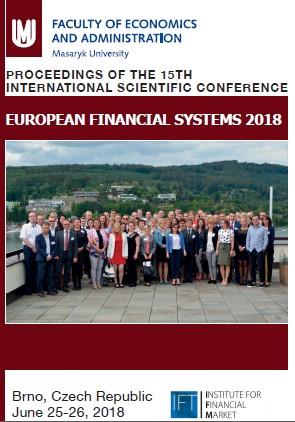Motives of Households for Saving in Poland
Motives of Households for Saving in Poland
Author(s): Anna Magdalena Korzeniowska
Subject(s): Socio-Economic Research
Published by: Masarykova univerzita nakladatelství
Keywords: saving motives; saving behaviour; personal saving;
Summary/Abstract: Saving is a process of putting away some resources to preserve them for future use. The process can be run either consciously or unconsciously. The latter occurs, e.g. when at the end of a certain period, some unplanned surplus is available. The saving process is the subject of intense consideration in different trends of economics. Many researchers and scientists are interested enough in saving and its motives to include it as part of their economic theories. Among them were J. M. Keynes, who focused on current income, F. Modigliani, the author of the life-cycle hypothesis of saving and M. Friedman, who worked on the permanent income hypothesis. J. Duesenberry and a large group of other researchers state that the saving behaviour of households is determined mostly by psychological and sociological determinants. Duesenberry emphasizes that saving behaviour of an individual is influenced by that person's peers. Others focus on personal traits such as aversion to risk, habits and attitudes as factors of saving. They often take into consideration socio-economical qualities of savers, e.g. gender, age, location, income, etc. These points of view were presented in the works of G. Katona, who also suggested that past experience in saving influences the likelihood of doing it in the future (Devaney, Anong, Whirl, 2007).
Book: European Financial Systems 2018 - Proceedings of the 15th International Scientific Conference
- Page Range: 284-291
- Page Count: 8
- Publication Year: 2018
- Language: English
- Content File-PDF

